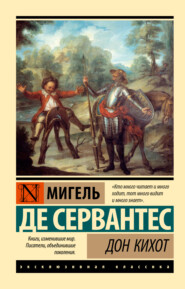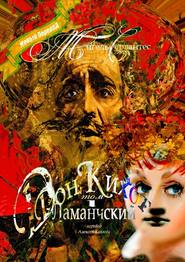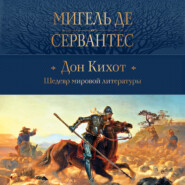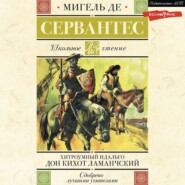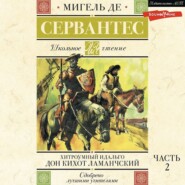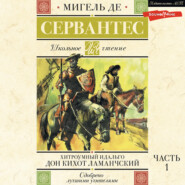По всем вопросам обращайтесь на: info@litportal.ru
(©) 2003-2025.
✖
The History of Don Quixote, Volume 2, Part 28
Настройки чтения
Размер шрифта
Высота строк
Поля
"What, seen her!" said Sancho; "why, who the devil was it but myself that first thought of the enchantment business? She is as much enchanted as my father."
The ecclesiastic, when he heard them talking of giants and caitiffs and enchantments, began to suspect that this must be Don Quixote of La Mancha, whose story the duke was always reading; and he had himself often reproved him for it, telling him it was foolish to read such fooleries; and becoming convinced that his suspicion was correct, addressing the duke, he said very angrily to him, "Senor, your excellence will have to give account to God for what this good man does. This Don Quixote, or Don Simpleton, or whatever his name is, cannot, I imagine, be such a blockhead as your excellence would have him, holding out encouragement to him to go on with his vagaries and follies." Then turning to address Don Quixote he said, "And you, num-skull, who put it into your head that you are a knight-errant, and vanquish giants and capture miscreants? Go your ways in a good hour, and in a good hour be it said to you. Go home and bring up your children if you have any, and attend to your business, and give over going wandering about the world, gaping and making a laughing-stock of yourself to all who know you and all who don't. Where, in heaven's name, have you discovered that there are or ever were knights-errant? Where are there giants in Spain or miscreants in La Mancha, or enchanted Dulcineas, or all the rest of the silly things they tell about you?"
Don Quixote listened attentively to the reverend gentleman's words, and as soon as he perceived he had done speaking, regardless of the presence of the duke and duchess, he sprang to his feet with angry looks and an agitated countenance, and said – But the reply deserves a chapter to itself.






